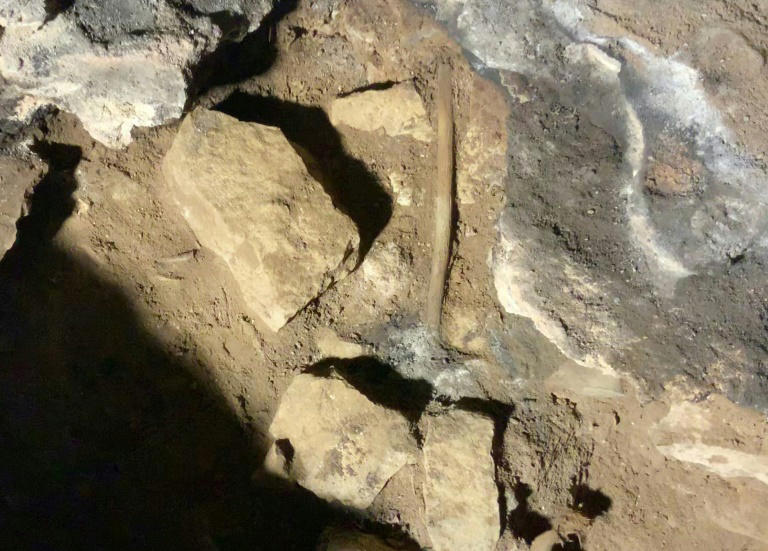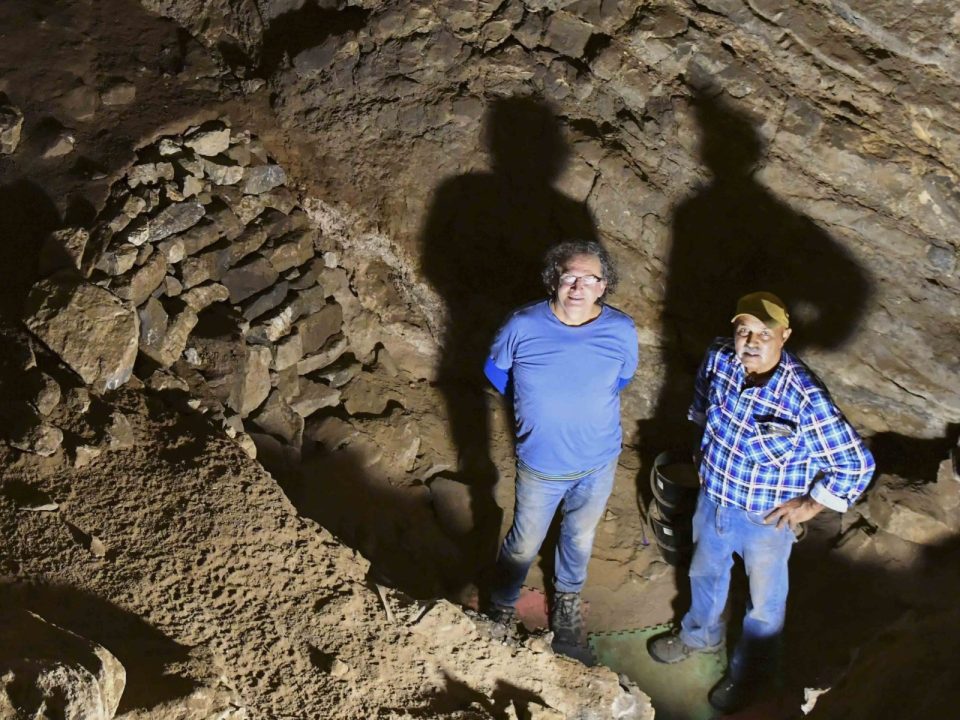FALCON POWERS – Two wooden poles coated in fat, representing evidence of rituals dating back 12,000 years, have been discovered inside a cave in Australia. The rituals were passed down through more than 500 generations of Indigenous Australians, a study has confirmed.
It is extremely rare for archaeological evidence going back thousands of years to be able to trace the symbolic behaviors of societies that did not practice writing, as the study’s authors explained.

The discovery was made in a cave located at the foothills of the Australian Alps (in southeastern Australia), inhabited by the Gunaikurnai Indigenous group. Excavations at the cave were conducted in the 1970s, leading to the discovery of remains of giant kangaroos that may have been the first inhabitants of the cave.
However, the Gunaikurnai “were not involved in the excavations” at this site that belongs to “their ancestors,” as archaeologist Bruno David from Monash University’s Indigenous Studies program and the study’s lead author said.
In 2020, new excavations were carried out in the Cloggs Cave, this time led by a team representing the Gunaikurnai Land and Waters Aboriginal Corporation (GLaWAC).

Wanting to reach untouched older layers, the archaeologists dug small trenches in the wall, revealing a wooden pole and then a second one, which were remarkably well-preserved.
The first pole dates back 11,000 years, while the second one is 12,000 years old, from the end of the last ice age, according to radiocarbon dating. The poles are barely charred, each resting in an ash pile the size of a hand, unsuitable for heating or cooking meat. The ends of the poles were smoothed and they were placed vertically in the fire and coated in animal or human fat.
Russell Mullett, GLaWAC’s chair and a co-author of the study, said these are “frozen moments in time, tantalizing in their curiosity about what was happening in the cave.”


